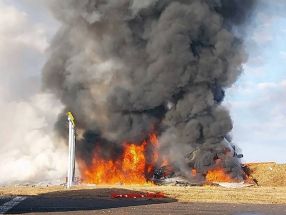Little progress in key plank of Obama anti-IS strategy
WASHINGTON — U.S. military and intelligence officials are voicing increasing pessimism about a key tenet of the Obama administration's strategy to dislodge the Islamic State group and stabilize Iraq.
They say they are seeing little sign of any political accommodation between the country's Shiite-led government and an alienated Sunni population from which the extremist force is drawing money and personnel.
President Barack Obama expressed hope in September that a new Iraqi government led by Prime Minister Haider Abadi "understands that in order for Iraq to succeed it's not just a matter of a military campaign; it's also the need for political outreach to all factions within the country." That's a feat his predecessor, Nouri al-Maliki, didn't achieve.
But in the months since, the Shiite-dominated government has taken few concrete steps to accommodate Sunnis, whose frustration helped fuel the Islamic State group's push into Iraq from Syria.
Joint chiefs chairman Gen. Martin Dempsey, who returned from the region this week, told Congress on Wednesday he was "concerned about what happens after the drums stop beating and ISIL is defeated, and whether the government of Iraq will remain on a path to provide an inclusive government for all of the various groups within it." Dempsey used an alternative acronym for the militant group.
Director of National Intelligence James Clapper said on March 2, "I really don't think there's any way of reversing or changing the picture fundamentally in Iraq unless the Sunnis are included ... and so far that's been a struggle."
Instead of reaching out to Sunnis, the Iraqi government has bolstered its already close ties to Iran and to Iranian-backed Shiite militias that have been credibly accused of massacring Sunnis, U.S. officials acknowledge. The Iraqi military's reliance on Shiite militias this week to retake Tikrit, a Sunni stronghold, has complicated the prospects of political reconciliation, experts say.
Although some Sunnis welcomed the liberation force, the well-publicized role of the Iranian Revolutionary Guard's Quds Force commander Qassem Soleimani in directing the assault on Tikrit has inflamed many Sunnis. Iran and Iraq fought a bloody seven-year war in the 1980s.
"They see it as a Persian invasion of the Sunni heartland," said John Maguire, a former CIA case officer with long Middle East experience who travels frequently to Iraq.
Human Rights Watch said in a March 4 report that it has documented "numerous" atrocities against Sunni civilians by the Shiite militias and security forces after they retook other towns.
Similar to their rivals, the Shiite militias commonly post videos online documenting their atrocities and efforts to intimidate opponents.
Sunnis are the dominant ethnic group in most of the areas of Iraq seized by Islamic State militants, who are also Sunnis. While many Iraqi Sunnis loathe the group's violent ideology, some see it as preferable to Shiite rule. In 2007, Sunni tribes revolted against the Islamic State's predecessor, al-Qaida in Iraq, after being promised a share of power.
American officials believe U.S. bombing can help dislodge Islamic State militants from Iraqi territory in the short term, but they fear that group, or some other virulent Sunni insurgency, will simply re-emerge after the bombing stops in the absence of a political deal.
Dempsey said his trip to Iraq left him worried that the sectarian divide could cause Sunni Arab members of the coalition fighting the Islamic State — like Saudi Arabia and the Persian Gulf countries — to bolt.
After meeting with Abadi, Dempsey told reporters Monday he was given firm assurances that the Shiite-led government is committed to reconciling with the Sunnis. Asked in an interview whether he considered those assurances credible, Dempsey said, "They seemed credible today."
Dempsey noted that during his helicopter flight over Baghdad he saw worrisome signs of Iranian influence. He spotted "a plethora of flags" at checkpoints and elsewhere in the capital, "only one of which happens to be the Iraqi flag," he said, alluding to the banners of Iranian-backed Shiite militias.
Signs of political reconciliation have been sparse. Last month, the Abadi government approved a draft law to set up a national guard that would include Sunnis, but that measure is languishing. A second draft measure designed to ease the purge directed at mainly Sunni members of Saddam Hussein's Baath Party was greeted by protests from Sunni lawmakers.
___
Associated Press writers Deb Riechmann and Lolita C. Baldor in Washington and Vivian Salama in Baghdad contributed to this report.
- Latest
- Trending






























